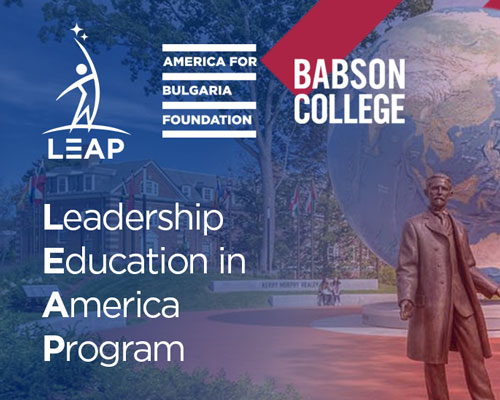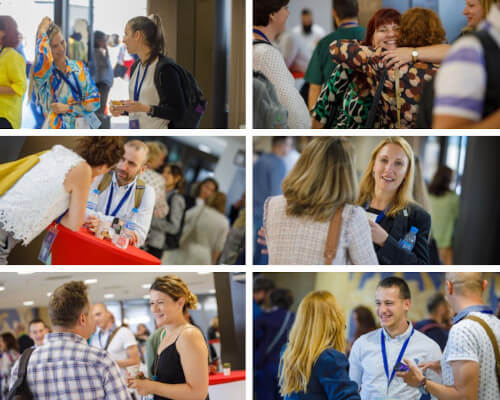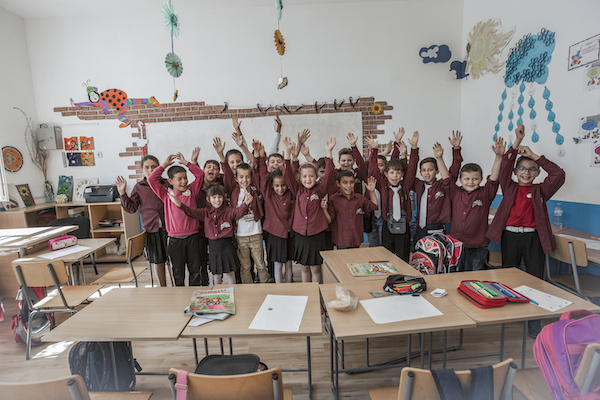 If you forgot your math set for geometry class or your sketchbook and watercolors for art class, you don’t need to hide at the back of the classroom or borrow supplies from your classmates—at least not if you are a student at Svetlina Primary & Middle School. A fully stocked supply cabinet at the entrance of the school invites students to help themselves to anything they need.
If you forgot your math set for geometry class or your sketchbook and watercolors for art class, you don’t need to hide at the back of the classroom or borrow supplies from your classmates—at least not if you are a student at Svetlina Primary & Middle School. A fully stocked supply cabinet at the entrance of the school invites students to help themselves to anything they need.
“We don’t want kids to worry about minor things such as supplies—we want them to feel calm and secure coming to school,” says Todorka (Dora) Rusinova, who this year is celebrating a quarter of a century as principal of the only school in the village of Topolitsa, in Eastern Bulgaria. She believes her most important accomplishment in the past twenty-five years is creating a welcoming environment for the students of Svetlina, which means “light” in Bulgarian. “I do not mean only the physical environment, but also our approach to students and their parents. What’s important to us are the students, so we changed the relationships both at school and with the local community,” Dora says.
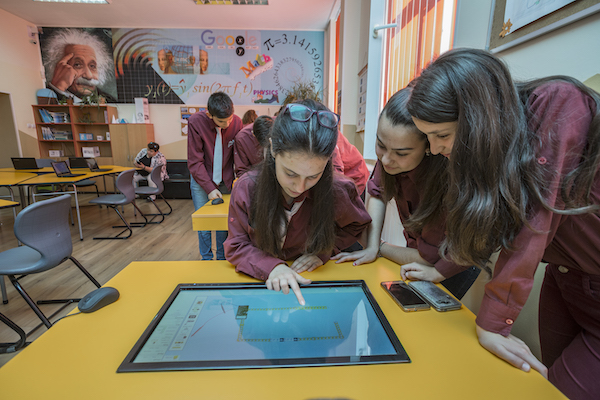 Visitors always remark how beautiful and modern Svetlina’s campus looks. Indeed, the school yard has been transformed into a lovely park for rest and recreation; the renovated classrooms and hallways proudly show off student work and keepsakes from parents’ participation in school events; and, finally, the well-equipped subject labs and Digital Zone, created with help from the America for Bulgaria Foundation’s Schools of the Future program, are some of the best in the country.
Visitors always remark how beautiful and modern Svetlina’s campus looks. Indeed, the school yard has been transformed into a lovely park for rest and recreation; the renovated classrooms and hallways proudly show off student work and keepsakes from parents’ participation in school events; and, finally, the well-equipped subject labs and Digital Zone, created with help from the America for Bulgaria Foundation’s Schools of the Future program, are some of the best in the country.
It is harder for visitors to put their finger on the school atmosphere, but they all sense that it is different. “This school has a lot of spirit” is an often-heard remark. According to one visitor, the kids “look really happy to be there.” In fact, they show up even during school breaks, particularly after Dora and her team launched a campaign to renovate and enrich the school library, turning it into an appealing hangout for students. “The school felt very empty without them,” admits Dora, who knows each one of Svetlina’s 83 students.
Today, education experts tout the importance of placing students at the center of the education process but do not seem to agree on how best to achieve this. At Svetlina, this aspiration is a reality. For a quarter of a century, Dora has skillfully ushered in the many changes that were needed to place the focus on children. A key part of these changes involves parents, the Svetlina principal says, and a number of studies testify to the beneficial effect of parents’ involvement in education on their children’s academic success. In 2000, Dora completed a course for teachers and principals teaching strategies for parent engagement, after which she herself taught seminars in this field. She has been a regional coordinator of a parents’ association since 2003.
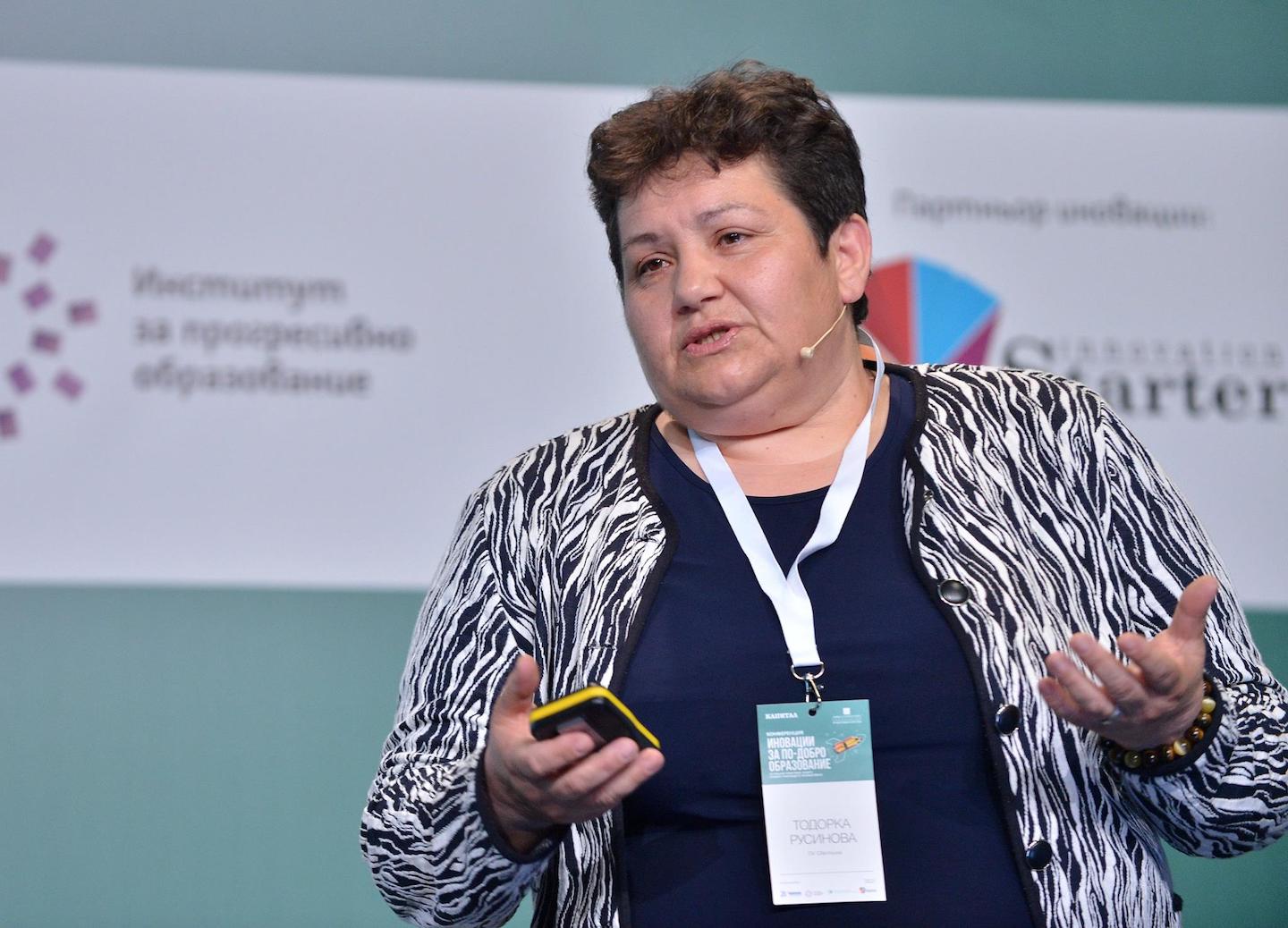 To make parents understand how responsible a teacher’s job is, Dora created the so-called Parents’ Calendar. Throughout the school year, parents attend classes and help instructors teach. They also engage in extracurricular activities, and their participation is reflected in the Parents’ Tree—a tree with eight branches, one for each of the eight classes. Tree leaves represent activities, and flower buds record parents’ individual participation. “The students compete to make their branch the biggest,” Dora explains. “They love it when parents take part in such activities, and parents become more aware of what we do. Ultimately, this builds trust between people.”
To make parents understand how responsible a teacher’s job is, Dora created the so-called Parents’ Calendar. Throughout the school year, parents attend classes and help instructors teach. They also engage in extracurricular activities, and their participation is reflected in the Parents’ Tree—a tree with eight branches, one for each of the eight classes. Tree leaves represent activities, and flower buds record parents’ individual participation. “The students compete to make their branch the biggest,” Dora explains. “They love it when parents take part in such activities, and parents become more aware of what we do. Ultimately, this builds trust between people.”
The results are clear: parents are an important part of the school community in Topolitsa and actively support and participate in school initiatives. A parents’ team plays in Svetlina’s soccer tournament, while a sizable group of Svetlina students, parents, and teachers has joined the Let’s Clean Bulgaria Together campaign for several years in a row. In 2000, a group of parents donated a part of their salaries to support the construction of the school’s heating system.
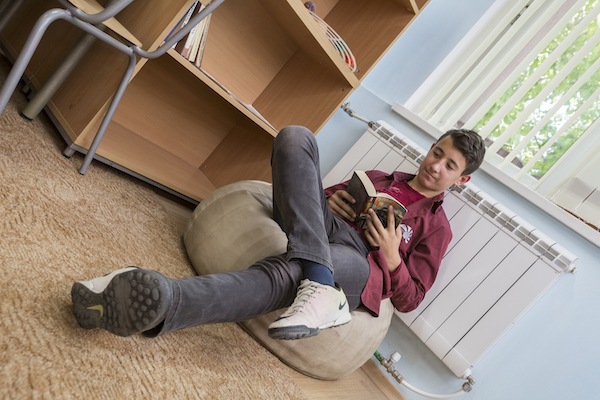 Dora was an early advocate of the use of modern technology in the classroom. Thanks to the efforts of its then-new principal, Svetlina became one of the first schools in the region to acquire computers in the mid-1990s. “They say appetite comes with eating; it’s the same with technology,” Dora says. In 2001, the school’s computers were upgraded. Since then, Dora hasn’t missed a single opportunity to test and integrate new technologies into the education process in the name of better education for Svetlina’s students. Since 2009, the school has used a digital diary app for parent-school communication, and it earned a certificate for best school website that same year. In 2016, Svetlina acquired its Digital Zone, becoming one of ABF’s 85 Schools of the Future. Today, Google Classroom is an integral part of teaching and learning at Svetlina, and thanks to the virtual learning environment developed by Shkolo.bg, teachers, parents, and students communicate ever more effectively and frequently. The school’s adept use of technology to improve education has earned Svetlina Innovative School status, awarded by Bulgaria’s education ministry, starting this school year.
Dora was an early advocate of the use of modern technology in the classroom. Thanks to the efforts of its then-new principal, Svetlina became one of the first schools in the region to acquire computers in the mid-1990s. “They say appetite comes with eating; it’s the same with technology,” Dora says. In 2001, the school’s computers were upgraded. Since then, Dora hasn’t missed a single opportunity to test and integrate new technologies into the education process in the name of better education for Svetlina’s students. Since 2009, the school has used a digital diary app for parent-school communication, and it earned a certificate for best school website that same year. In 2016, Svetlina acquired its Digital Zone, becoming one of ABF’s 85 Schools of the Future. Today, Google Classroom is an integral part of teaching and learning at Svetlina, and thanks to the virtual learning environment developed by Shkolo.bg, teachers, parents, and students communicate ever more effectively and frequently. The school’s adept use of technology to improve education has earned Svetlina Innovative School status, awarded by Bulgaria’s education ministry, starting this school year.
The school’s success is also a result of its approach to education—an approach that shortens the distance between teachers and students. Following the Learning and Teaching Together model, teachers at Svetlina build on the learning material by solving real-world problems together with their students. Solutions often involve doing internet searches, consulting with experts, and carrying out practical experiments. “When children feel engaged, learning becomes much easier,” Dora says.
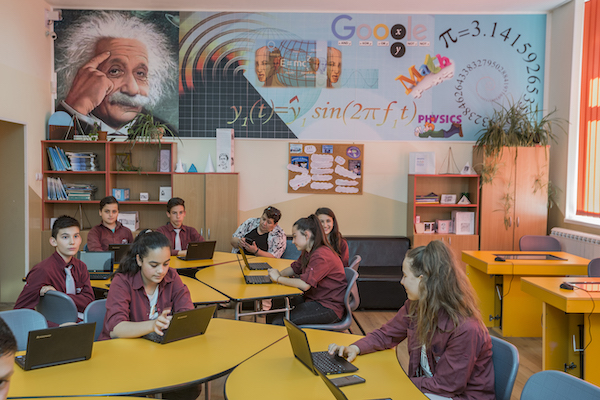 Another aspect of Dora’s successful leadership is her open dialogue with and unconditional support for teachers. “I know my team very well—their strengths, their emotions, their weaknesses. It is important that everyone feels comfortable here and has the opportunity to develop their potential,” Dora says. She herself has never stopped learning and looking for ways to improve Svetlina’s educational practices. She has participated in several ABF programs for school leaders, and, in 2016, she took part in the “Innovation for Better Education” conference organized by ABF in partnership with Capital weekly.
Another aspect of Dora’s successful leadership is her open dialogue with and unconditional support for teachers. “I know my team very well—their strengths, their emotions, their weaknesses. It is important that everyone feels comfortable here and has the opportunity to develop their potential,” Dora says. She herself has never stopped learning and looking for ways to improve Svetlina’s educational practices. She has participated in several ABF programs for school leaders, and, in 2016, she took part in the “Innovation for Better Education” conference organized by ABF in partnership with Capital weekly.
Dora’s inexhaustible energy has earned her the nickname “Flying Dora”—and she really does seem to be everywhere, always working for the betterment of her school. She points to the responsibility she holds in her position as the source of this energy. “I feel responsible for everything connected with the school—each person’s fate, every hope. I am also happy that I don’t have to bear this responsibility alone. My staff and the students’ parents have always supported me. I personally think that the school needs to evolve constantly. In fact, a school needs to stay ahead of its time if it is to make dreams come true. There is no limit to my dreams, and I encourage teachers and students to be bold in theirs too. When you dream big, sooner or later, you will achieve what you want.”
